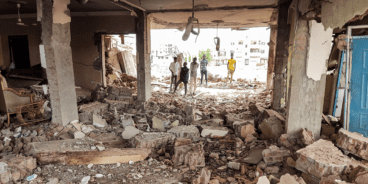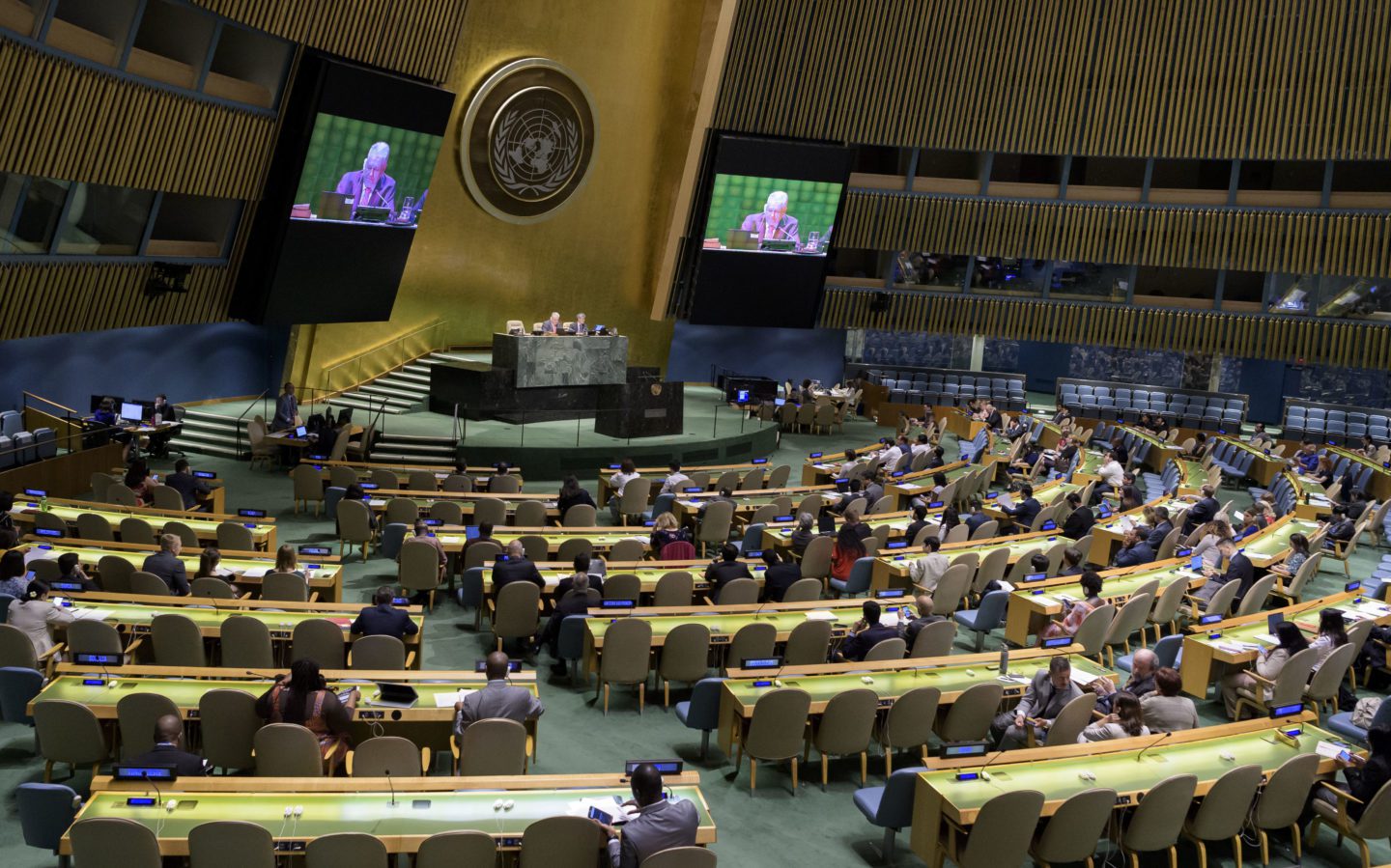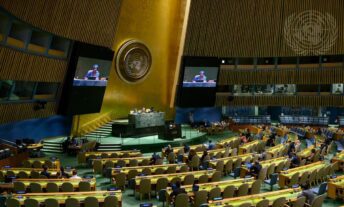
Remarks delivered at UN General Assembly Ministerial Side-Event “Small Arms and Light Weapons: The Real Weapons of Mass Destruction New Dynamics in the Fight Against Illegal Trafficking of Small Arms”
As delivered by Dr. Simon Adams, Executive Director of the Global Centre for the Responsibility to Protect. United Nations Headquarters, New York.
I would like to thank the Foreign Minister of Germany for organizing this important event. I would also like to thank this panel of distinguished speakers.
Most mass atrocity crimes committed in the 70 years since the UN’s inception have been perpetrated with small arms and light weapons. From the killing fields of Cambodia to the mass graves of Srebrenica or the burnt villages of Darfur, most of the killing has been done with rifles and other small arms.
Today, small arms are indeed weapons of mass destruction in the developing world. For example, it is estimated that there are around 70 million AK47 assault rifles in the world today. Despite its lethality, a loaded AK47 can weigh as little as 5kg (11 lbs) and can be easily used by a child soldier – just one reason for its prevalence and popularity amongst groups that perpetrate mass atrocity crimes. AK47s have been a highly visible killing tool during deadly conflicts in Cote d’Ivoire, Democratic Republic of the Congo, Somalia, Sudan, South Sudan, Libya and Syria, to mention just a few.
Similarly, an estimated 12 billion bullets are also manufactured globally each year – enough bullets to shoot every person on this planet.
This points to a core problem. The proliferation of small arms and light weapons can enhance a state’s risk for genocide, war crimes, ethnic cleansing and crimes against humanity, as noted in the UN’s Framework of Analysis for Atrocity Crimes. This is also recognized in UN Security Council resolutions 2117 and 2220.
The growing threat of violent extremism also highlights the significant risks to civilians when weak borders allows for the illicit trade in weapons. Boko Haram, ISIL and other non-state armed groups benefit from the global availability of cheap weapons and plentiful ammunition.
It is for these reasons that we strongly urge states to ratify and implement the Arms Trade Treaty. Small arms and light weapons are a global threat. It requires global action to protect vulnerable civilians from their devastating consequences.
I thank you.
Related Content


Summary of the 2023 UN General Assembly Plenary Meeting on the Responsibility to Protect
